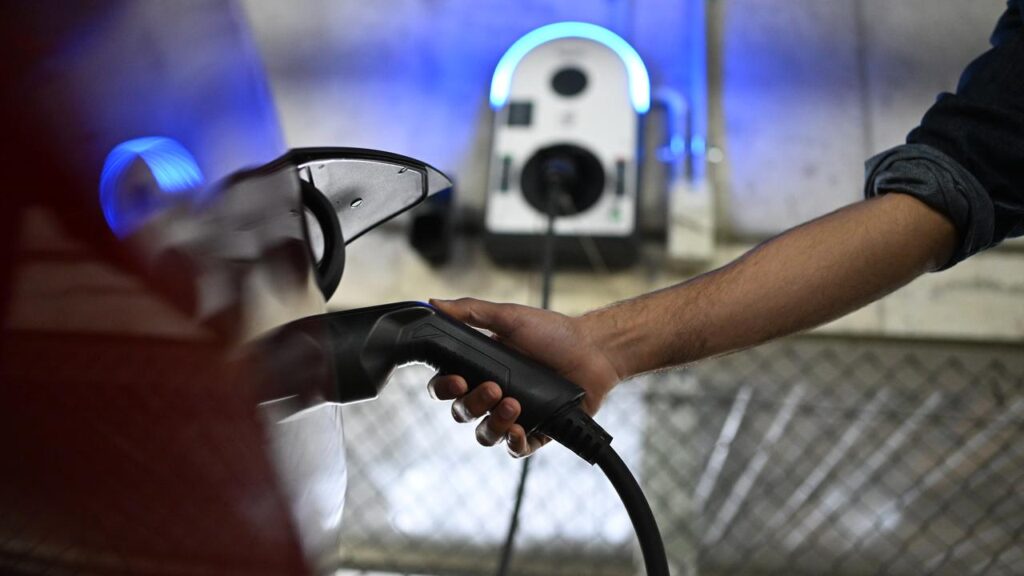Drivers could pay more tax after electric car U-turn
Jennifer Dudley-Nicholson |

The cost of buying an electric vehicle could rise by thousands of dollars for some motorists if fringe benefits tax rules are changed after the election.
Automotive groups warn drivers in outer metropolitan suburbs could be hit hardest by the change, which would raise transport costs for some while fuel tax cuts lowered costs for others.
The warnings come after the coalition revealed it planned to remove fringe benefits tax subsidies for low-emission vehicles if it won government, calling the tax policy “wasteful spending”.

The policy change could save the government more than $3 billion, according to coalition figures.
But the change would raise costs for Australians buying electric vehicles by thousands of dollars each year, National Automotive Leasing and Salary Packaging Association chief executive Rohan Martin said.
Under the current policy, electric and hydrogen-powered vehicles do not attract fringe benefits tax if they fall under the luxury car tax threshold of $91,387 and are purchased through a salary packaging program.
“For an EV around the $45,000 mark, we estimate a worker would pay another $3500 per year without the exemption to own and operate that car,” Mr Martin told AAP.
“If it was a $60,000 EV, such as a (BYD) Sealion 7, then it would be about $4700 more per annum without the exemption.”
Rising costs would hit families in suburbs hardest, he said, as households with longer commutes, solar panels and off-street parking had proven most likely to use the tax exemption.

“It’s average, everyday working Australians living in outer metropolitan suburbs that are the main beneficiaries of this existing policy and are the main users of this policy,” Mr Martin said.
Coalition leader Peter Dutton denied plans to remove the tax exemption represented a change in policy as the party opposed its introduction in July 2022.
The federal opposition has also announced plans to cut fuel excise by 25 cents a litre for one year – at a cost of $6 billion – and remove penalties for car companies exceeding emissions limits under the New Vehicle Efficiency Standard.
The election policies would only lower transport costs for some motorists, Electric Vehicle Council chief executive Julie Delvecchio said, while punishing those who had invested in low-emission vehicles to cut pollution, fuel and maintenance costs.
“The FBT exemption passed by parliament has been highly effective,” she said.
“Scrapping it now will drive up the cost of owning and running an EV for Australians and stall progress towards cleaner, cheaper-to-run transport.”
AAP